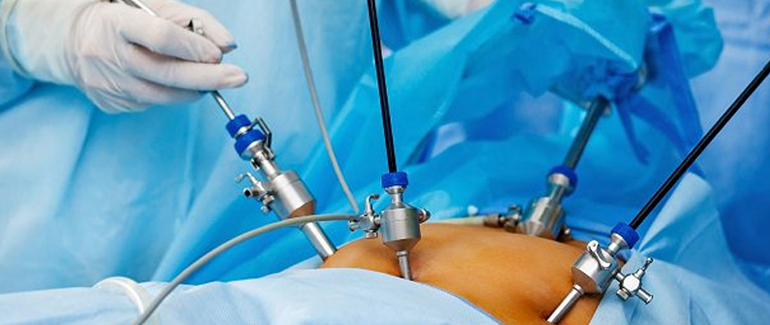
General / Laparoscopy Surgery
General surgeons who specialize in laparoscopic surgery are medical professionals with expertise in performing minimally invasive surgical procedures using a technique called laparoscopy. Laparoscopic surgery, also known as minimally invasive surgery or keyhole surgery, involves making small incisions through which a camera and specialized instruments are inserted to perform surgical procedures.
Here are some key aspects of the work of a general surgeon specializing in laparoscopy:
- Minimally Invasive Procedures: Laparoscopic surgeons use small incisions (usually less than an inch) to access the surgical site. This approach reduces trauma to the body, minimizes scarring, and generally leads to faster recovery times compared to traditional open surgery.
- Diagnostic Laparoscopy: Laparoscopic surgery is often used for diagnostic purposes, allowing surgeons to visually inspect and assess the abdominal and pelvic organs. It is particularly useful in identifying and diagnosing conditions such as tumors, cysts, or inflammation.
- Common Laparoscopic Procedures: General surgeons specializing in laparoscopy perform a wide range of surgical procedures using this technique. Common examples include laparoscopic cholecystectomy (gallbladder removal), appendectomy, hernia repair, colectomy (colon resection), and anti-reflux surgery.
- Advanced Laparoscopic Procedures: In addition to routine procedures, laparoscopic surgeons may perform more complex surgeries, such as bariatric surgery for weight loss, organ resections, and gynecological procedures.
- High-Definition Imaging: Laparoscopic surgery relies on high-definition cameras that provide detailed images of the surgical site. Surgeons use these images to guide their instruments and perform precise maneuvers.
- Training and Skill Development: Surgeons specializing in laparoscopy undergo specific training to develop the skills required for minimally invasive procedures. This includes hand-eye coordination, spatial awareness, and proficiency in using specialized instruments.
- Patient Benefits: Patients undergoing laparoscopic surgery often experience less postoperative pain, reduced scarring, shorter hospital stays, and faster recovery times compared to traditional open surgery. The overall goal is to minimize the impact of surgery on the patient’s body.
- Collaboration with a Multidisciplinary Team: Laparoscopic surgeons collaborate with anesthesiologists, nurses, and other surgical team members to ensure the success of the procedure and the well-being of the patient.
It’s worth noting that while laparoscopic surgery offers many advantages, not all surgical procedures can be performed using this technique. The decision to use laparoscopy depends on the specific characteristics of the patient and the nature of the surgical intervention.



